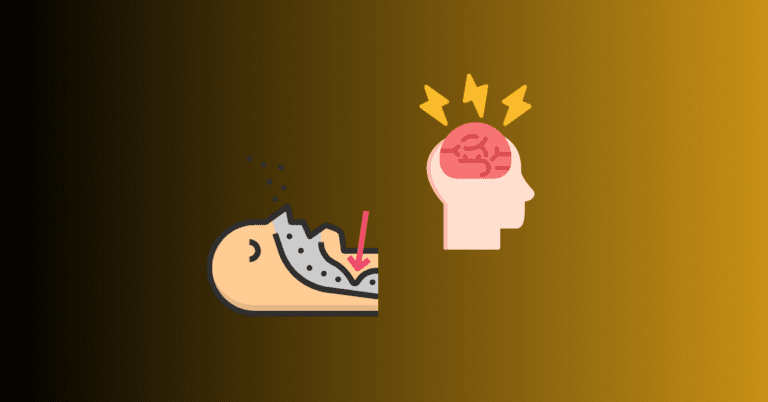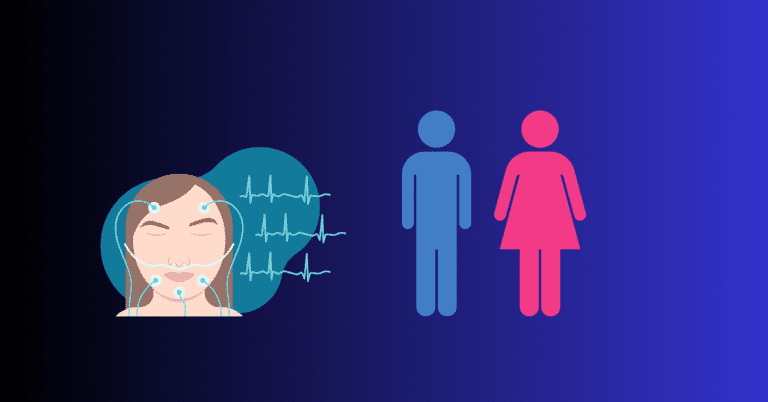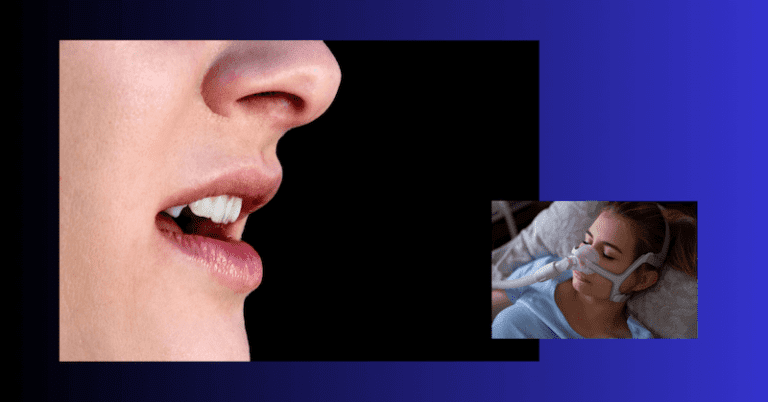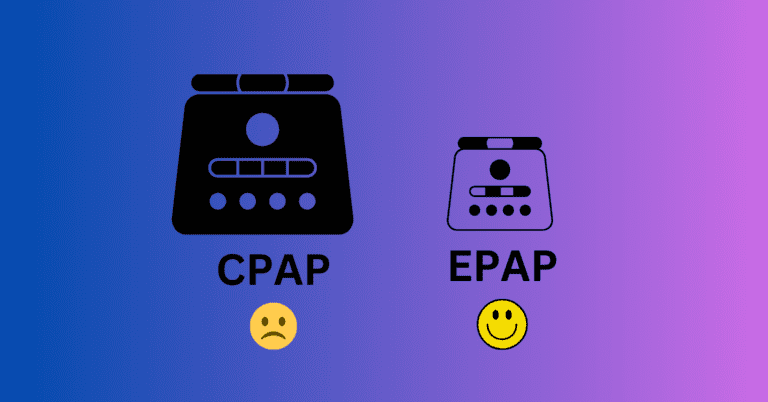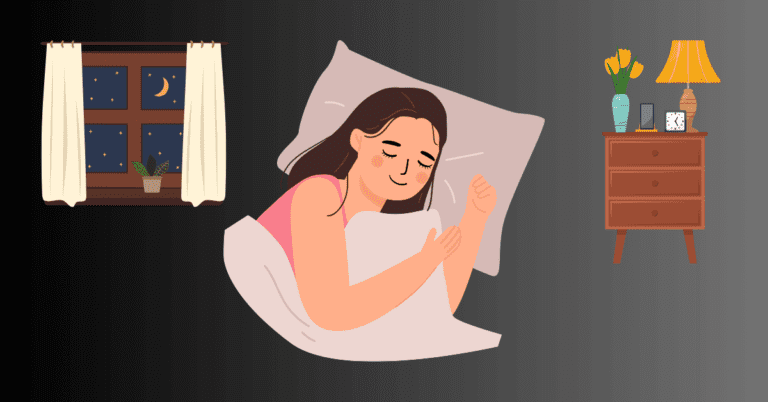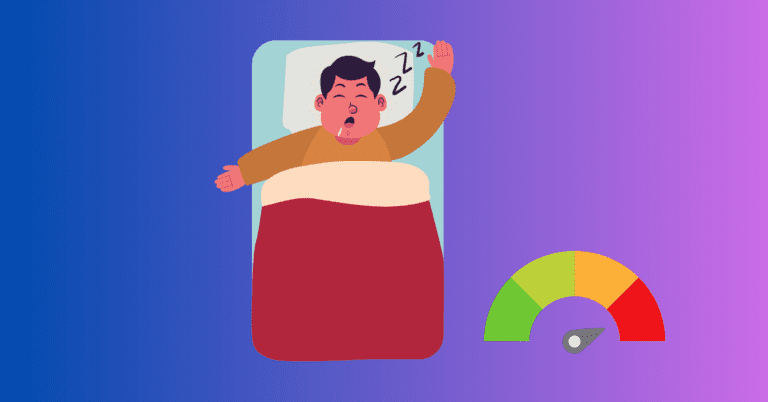Acupuncture for Sleep Apnea: Can it Help?
Jeremy Smith is a long-term CPAP user and sleep apnea advocate. After being diagnosed with severe obstructive sleep apnea, he created ByJeremySmith.com to help others navigate CPAP therapy through personal stories, gear reviews, and practical advice.
Can Acupuncture for Sleep Apnea work?
Sleep apnea is a common disorder that causes interruptions in breathing during sleep. This can lead to poor sleep quality and numerous health complications.
While traditional treatments like CPAP (Continuous Positive Airway Pressure) therapy, oral appliances, and lifestyle changes are widely used to manage sleep apnea, some individuals are turning to alternative treatments like acupuncture.

But can acupuncture really help with sleep apnea?
I have severe sleep apnea and use a CPAP Machine that works really well for me. I don’t think I’ll be considering acupuncture, but I know others might if they have less severe sleep apnea.
In this article, we’ll explore acupuncture, how it works, and whether it can be an effective treatment for sleep apnea.
What Is Sleep Apnea?
Sleep apnea is a disorder characterized by repeated pauses in breathing during sleep. These interruptions, called apneas, can occur many times throughout the night and prevent you from reaching the deep, restorative stages of sleep. There are two main types of sleep apnea:
- Obstructive Sleep Apnea (OSA) The most common form, OSA occurs when the muscles in the throat relax too much during sleep, causing the airway to collapse.
- Central Sleep Apnea (CSA) This less common form occurs when the brain fails to send proper signals to the muscles responsible for breathing.
Sleep apnea symptoms include loud snoring, choking or gasping for air during sleep, excessive daytime sleepiness, and difficulty concentrating.
What Is Acupuncture?
Acupuncture is a traditional Chinese medicine technique that involves inserting thin needles into specific points on the body, known as acupoints, to promote healing and balance the body’s energy, or Qi (pronounced “chee”).
By stimulating these points, acupuncture is believed to help restore the flow of Qi, which in turn can help alleviate various health conditions.
In Western medicine, acupuncture stimulates the body’s nervous system and releases natural chemicals like endorphins and serotonin, which can help reduce pain, promote relaxation, and improve overall well-being.
Acupuncture is commonly used to treat a variety of conditions, including:
- Chronic pain (e.g., back pain, headaches, arthritis).
- Anxiety and stress.
- Digestive issues.
- Sleep disorders such as insomnia.
How Can Acupuncture Help Sleep Apnea?
The idea behind acupuncture for sleep apnea is that stimulating certain acupoints can help regulate the body’s autonomic functions, including breathing. Here’s how acupuncture may help:
1. Improving Respiratory Function
Acupuncture has been shown to help regulate the muscles in the airway, including those in the tongue and throat, which play a significant role in obstructive sleep apnea. By stimulating specific acupoints, acupuncture may improve muscle tone in the throat and reduce airway collapse during sleep.
2. Reducing Inflammation
Some studies suggest that acupuncture can help reduce inflammation in the body. Since chronic inflammation can contribute to airway obstruction in sleep apnea, acupuncture may help alleviate symptoms by reducing swelling in the airway tissues.
3. Enhancing Relaxation
One of the main benefits of acupuncture is its ability to promote relaxation and reduce stress. For individuals with sleep apnea, acupuncture may help reduce nighttime anxiety and tension, allowing for more restful sleep.
4. Supporting Weight Loss
Obesity is a significant risk factor for obstructive sleep apnea. Acupuncture has been shown to support weight loss by regulating hormones involved in appetite control and metabolism. By aiding in weight management, acupuncture may help reduce the severity of sleep apnea symptoms.
What Does the Research Say?
While acupuncture is widely practiced for various health conditions, research on its effectiveness specifically for sleep apnea is still emerging. Some small studies have shown promising results, suggesting that acupuncture may help reduce the severity of sleep apnea in certain individuals. However, more extensive and more rigorous studies are needed to confirm these findings.
1. Small Clinical Trials
A few small clinical trials have found that acupuncture may help reduce the frequency of apnea episodes and improve oxygen levels in people with obstructive sleep apnea. For example, one study published in the American Journal of Respiratory and Critical Care Medicine found that acupuncture reduced the Apnea-Hypopnea Index (AHI) in people with moderate OSA.
2. Systematic Reviews
Several systematic reviews of acupuncture for sleep disorders have concluded that acupuncture may have a modest benefit for people with sleep apnea, particularly for those who cannot tolerate traditional treatments like CPAP. However, these reviews also emphasize the need for more high-quality research to determine the long-term effectiveness of acupuncture for sleep apnea.
Acupuncture vs. Traditional Sleep Apnea Treatments
While acupuncture shows potential as a complementary therapy for sleep apnea, it is not considered a replacement for conventional treatments like CPAP or oral appliances. Here’s how acupuncture compares to traditional treatments:
CPAP Therapy

This is me with my trusty CPAP Machine.
CPAP is the gold standard for treating obstructive sleep apnea and works by keeping the airway open with continuous airflow. While acupuncture may help alleviate symptoms in mild cases, CPAP is generally more effective for moderate to severe sleep apnea.
Acupuncture can be used as a complementary therapy to improve overall well-being and relaxation alongside CPAP therapy.
Oral Appliances
Oral appliances are custom-made devices that reposition the jaw or tongue to keep the airway open during sleep. Acupuncture may help improve the muscle tone of the airway, which could enhance the effectiveness of oral appliances.
What to Expect
If you’re considering acupuncture for sleep apnea, knowing what to expect during treatment is important. Here’s an overview of the typical process:
Initial Consultation
Your acupuncturist will conduct an initial consultation to assess your overall health, discuss your sleep apnea symptoms, and identify specific acupoints for treatment. Then, based on your needs, the acupuncturist will develop a customized treatment plan.
Treatment Sessions
During each session, the acupuncturist will insert thin needles into specific points on your body, such as the hands, feet, head, or ears, depending on the treatment plan. The needles are typically left in place for 20 to 30 minutes while you relax.
Frequency of Sessions
To see improvement in sleep apnea, you may need multiple acupuncture sessions over several weeks or months. The frequency of sessions depends on the severity of your condition and how well you respond to treatment.
Should You Try Acupuncture?
Acupuncture may be worth exploring for individuals with mild to moderate sleep apnea who are looking for complementary therapies or cannot tolerate traditional treatments like CPAP.
While research on acupuncture’s effectiveness for sleep apnea is still limited, some people report improved symptoms, such as better sleep quality, reduced snoring, and less daytime fatigue.
However, it’s important to consult with your doctor before starting acupuncture. Acupuncture should not replace proven treatments like CPAP therapy, especially for people with moderate to severe sleep apnea.
Disclaimer: The content on this blog is for informational and educational purposes only and is not a substitute for professional medical advice. Always speak with your doctor or sleep specialist before starting, stopping, or changing any treatment or therapy related to sleep apnea or CPAP use.
